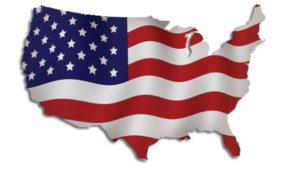Browse Categories

Browse Archives
Wrapping up 2012 with a Look at American Ingenuity

It’s no exaggeration to say that America was founded on ingenuity and production. Entrepreneurs like Andrew Carnegie of Carnegie Steel Company (which later became U.S. Steel) and John D. Rockefeller of Standard Oil went into business for themselves when they saw an opportunity to leverage their knowledge, their talents, and their spirit during America’s rise to industrial power in the late 19th century. They, along with a scant handful of others, became Captains of Industry, powerful and wealthy men.
The history of American industry is punctuated by many of these industrious business owners and leaders. Henry Ford, founder of the Ford Motor Company, revolutionized both the transportation and manufacturing industry. Adolphus Busch not only created the first national brand of beer, but introduced a great number of technical developments in the process. Andrew W. Mellon and J. P. Morgan were also notable figures because of their wealth and influence in the business world, but both were known as bankers and financiers during their time. Charles Merrill and Charles Schwab both developed ways for average Americans to invest in the markets. But, it must be said that Carnegie, Rockefeller, Ford, and Busch stand out from the crowd because they made things, products.
Perhaps, the closest business leader and entrepreneur we’ve seen to Carnegie or Rockefeller in the modern age is Steve Jobs, co-founder of Apple Computer. Apple is a company that helped build the computer and technology age from the ground up. Apple has designed, developed, manufactured, and sold over 200 million computers, 350 million iPods, 192 million iPhones, and 82 million iPads since its founding in 1976. Many of the technology companies that joined the technology industry after the advent of the personal computer and prospered were built on software and web-based technologies. In short: little that was tangible, just bits and bytes.
It’s true that America has a profound respect for companies and business leaders that bring products to the market. Product means jobs. Product means revenues and economic development. And during this new age of manufacturing – when America is in direct competition with China, Russia, and Japan for manufacturing business – those who will rise to the top of their industry and bring more product to market are the ones that can turn raw materials into finished goods on a large scale without diminished capacity, output, or quality due to avoidable problems along the manufacturing lines.
Every piece and part that snaps together or welds together to form our domestically-built automobiles, aircraft’s, computers, and consumer goods of all kinds rolls off a manufacturing line somewhere in America. Every manufacturing line runs on gears and sprockets. And every gear and sprocket generates burrs over time. Fortunately, the experienced designers and manufacturers at the Cleveland Deburring Machine Company (CDMC) have had the pleasure of connecting with many business owners (and perhaps future Captains of Industry) to help them achieve the best possible manufacturing outcomes with the help of our leading-edge deburring solutions.
